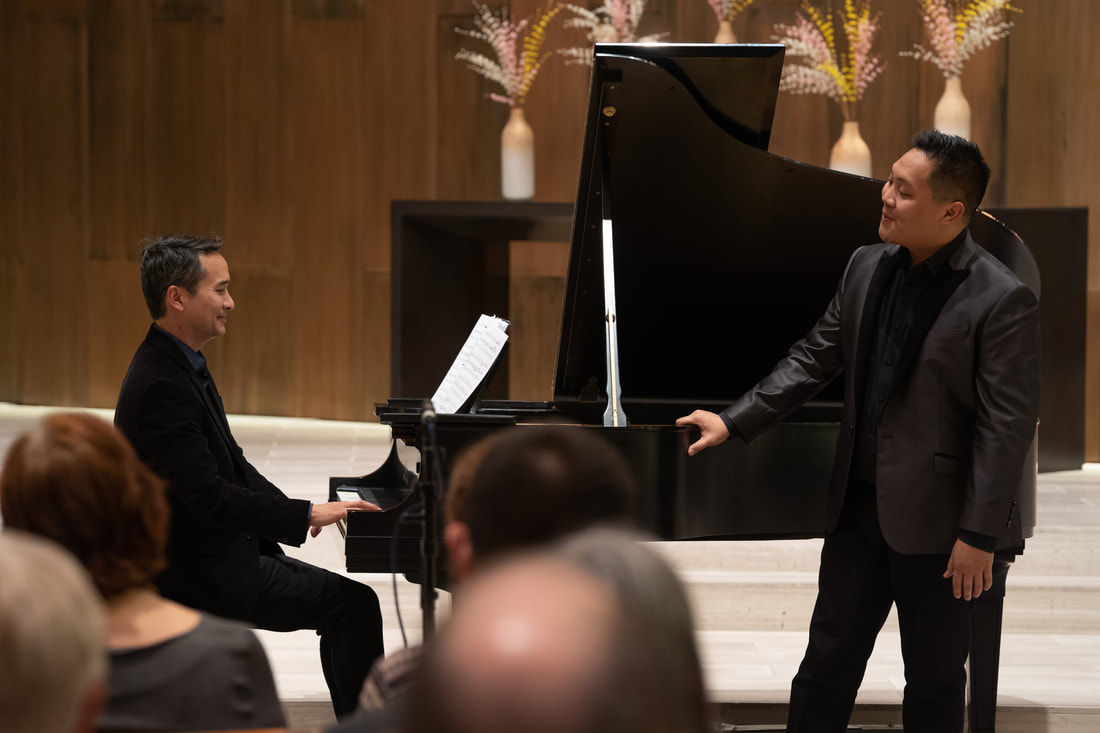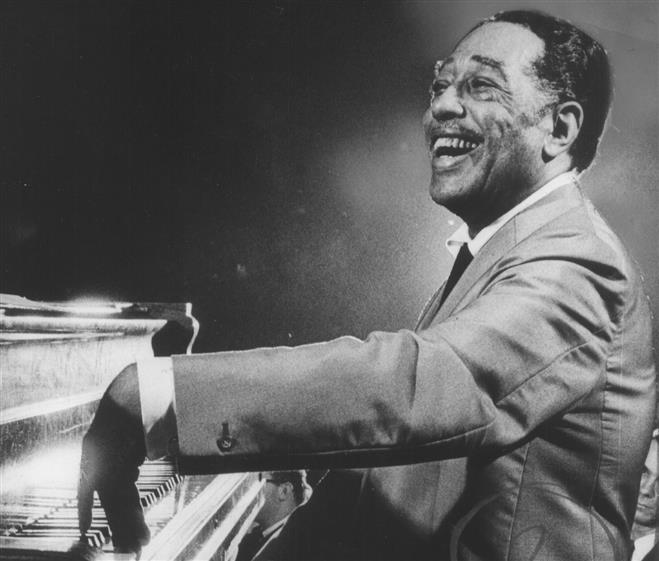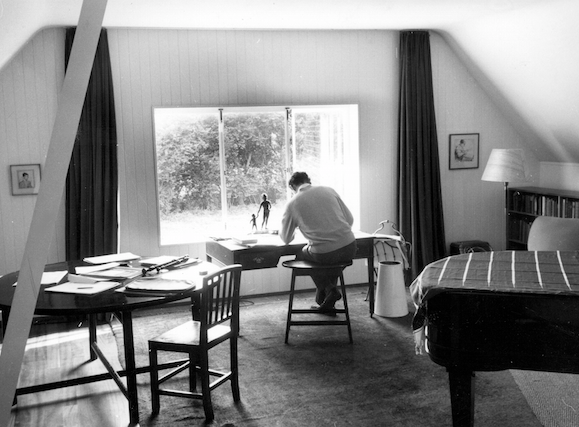|
By Ace Gangoso Almost exactly one year ago, we were singing in what would—unexpectedly—be our last concert of 2020. What a way to end my debut season with Fourth Coast Ensemble! Here we are a year later bouncing back, having recently kicked off of our Origin Stories concerts, live in HD. While we are all beyond excited to bring you these new performances, I still look forward to these blogs for The Art Song Fix because it gives us the opportunity to look back and reflect on how far we have come, in more ways than one. My song of choice today is “In a Sentimental Mood” by Duke Ellington. I must confess, I never really expected to be singing a jazz standard in a concert with “Chicago’s classical vocal quartet.” Shame on me! Of course, this was the point of the concert (entitled Between the Lines) which explored the boundaries surrounding what is typically considered classical vs. non-classical—in this case, jazz. Duke Ellington was a very gifted musician and songwriter, and a pioneer with his own attempts to blur the lines between classical and jazz. Teaming up with Billy Strayhorn, he sought out to write a multi-movement orchestral work telling the story of Black Americans, particularly through the lens of religion and slavery. Black, Brown and Beige premiered on January 23, 1943 and was met with mixed reviews, and, like his other large-scale works, never garnered widespread acclaim. We must consider, however, that classical music circles were even more Eurocentric at that time than they are today, and society at large more rampant with unchecked white supremacy. The insulting saying “good enough for jazz” was borne out of ignorance and hatred not just of the music, but its creators. Who knows what would have happened in a more equitable time and space, with ears more ready and willing to hear new sounds from a person of color on the concert hall stage. Here and now, at the end of Black History Month in the year 2021, it is evident that some progress has been made. I was tickled to get to use my falsetto croon and improvise riffs on this song immediately after singing full-throttle on Agustin Lara’s “Granada.” In classical concerts, you would often hear jazz pieces (if included at all) tucked in towards the end or used as an encore, presented as lighter fare in comparison to the more “serious” works that preceded it. But good music is good music, a good song is a good song, and every style and genre deserves to be respected and represented. Depth and virtuosity can be shown in a myriad of ways. May we continue to challenge our minds and senses, draw the circle wider, and grow the Fourth Coast family beyond what anyone would have ever dreamed!
0 Comments
English composer Benjamin Britten is primarily known amongst vocal music aficionados for his works for tenor, from Peter Grimes to the Canticles. Today, however, we spotlight a beautiful example of his work written for two female singers: “Mother Comfort,” from Two Ballads. Written in 1936 for Swiss singers Sophie and Colette Wyss, “Mother Comfort” sets a poem by Montagu Slater, later to become Britten’s librettist for the aforementioned Grimes. The text sets the two women in an ambiguous conflict with one another, at first asking whether they should even be talking together at all. It seems their friendship is strained by common interest in the same man, wondering to each other “Will you be Mother Comfort or shall I?” As the questions alternate between the two women, Britten echoes their back-and-forth with musical lines that intersect. Consonance and dissonance dip in and out, with the soprano and mezzo parts switching lines back and forth at different times. Each woman gets her own chance to express her feelings to the other, then returns to duo lines that weave betwixt and between. The writing requires strength and independence in each singer’s solo abilities, and simultaneously careful matching of timbre, phrasing, and text so that each voice blends and exchanges with the other to leave the listener guessing who is who. It is fortunate for me, then, that my mezzo duet partner in this work is Bridget - captured here in a recording from our parlor concert with pianist Dana Brown in 2019. One of the greatest joys of my work with Fourth Coast Ensemble has been our work together finding our distinctive blend, and being able to play my soprano lines off Bridget’s rich tone and expressive music-making. And it's an amplified gift as we continue to grow in our independent artistries, simultaneously strengthening our combined musical and vocal powers in partnership. That being the case, we are so excited to share our first duo concert, performed last Saturday, February 20th, through the power of livestreaming, with the phenomenal Kuang-Hao Huang on piano. We can't wait to share more musical melding - including more Britten! - with you all. Origin Stories: Soprano | Mezzo Duo is available for streaming access here through midnight CST tonight (2/22/21). Single tickets are $20.
|
SUBSCRIBEAboutHello, and welcome to the blog! We are Fourth Coast Ensemble, Chicago's classical vocal quartet. Join a different member of our ensemble for insights into our favorite art songs, links to archival and new recordings, and reflections on why we value and continue to come back to this musical medium. We proudly present, your #artsongfix! Archives
June 2023
Categories
All
|






 RSS Feed
RSS Feed
